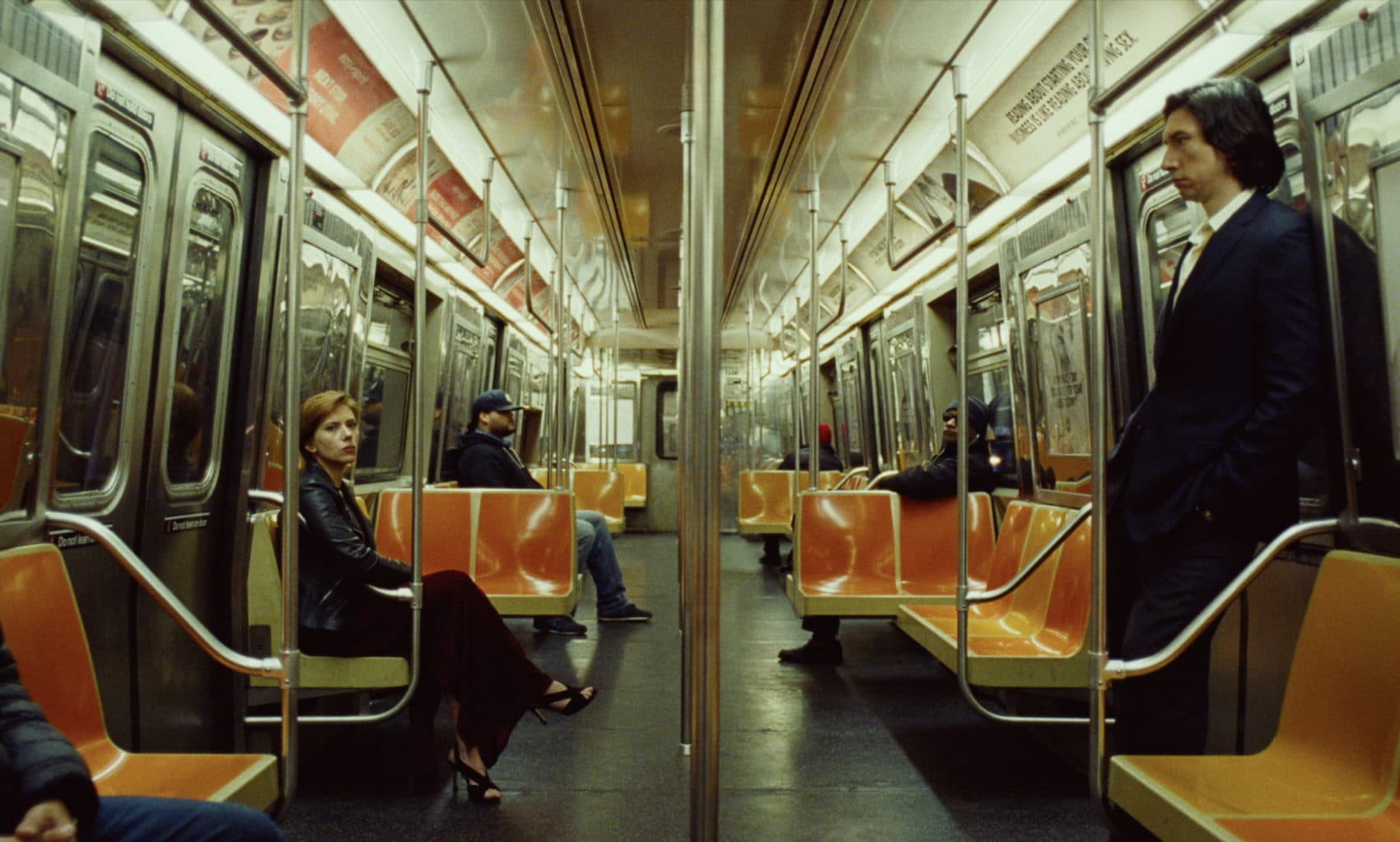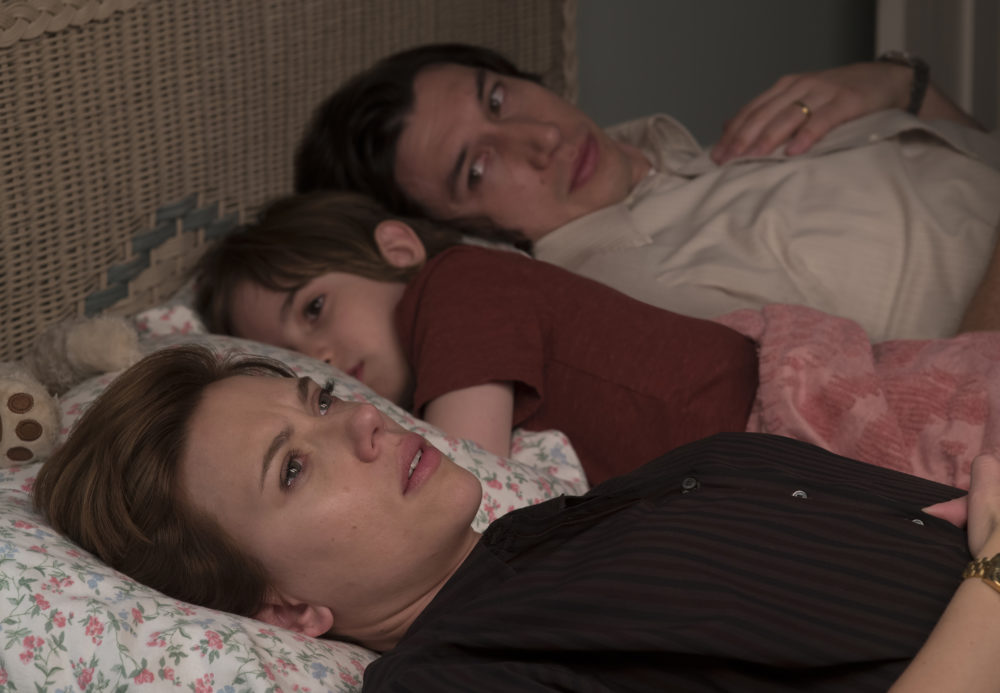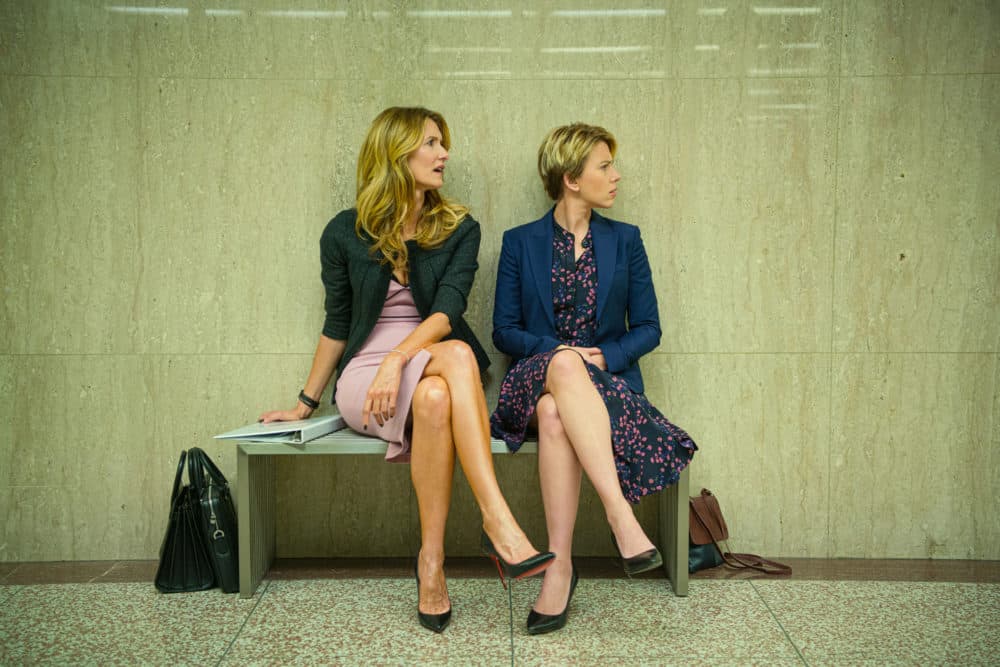Advertisement
Review
'Marriage Story' Chronicles A 21st-Century Uncoupling

“I spent $10,000 last summer on nothing,” was how a friend’s dad once described his divorce to me. Like most legal proceedings, the formal dissolution of a marriage is a dreadfully overcomplicated and absurdly expensive ordeal that involves a lot more than going out for a pack of cigarettes and never coming back. The grueling drain of this process — both psychological and financial — forms the spine of “Marriage Story,” writer-director Noah Baumbach’s ironically titled chronicle of a 21st-century uncoupling. Like most Baumbach movies, this one’s way overwritten and a touch too pleased with itself, but beneath all the surface fussiness contains fine performances and some bitter truths.
We begin with an inspired fake-out, as Charlie (Adam Driver) and Nicole (Scarlett Johansson) each read a list of things they love about each other via voice-over narration while a rapid-fire montage gives us glimpses of their courtship and tells the story of their marriage in miniature. He’s an acclaimed avant-garde theater director; she’s a starlet from topless teen comedies who found a legit career in his off-Broadway plays. Together, they sired several acclaimed productions and a young son named Henry (Azhy Robertson), but that’s all over now.
The lists were just an exercise for a couples counselor (Robert Smigel) attempting to negotiate the terms of their separation and now they’re both too pissed at each other to even read them out loud. Nicole’s going to bring Henry to stay with her mom (Julie Hagerty) out in Los Angeles while she shoots a television pilot. Charlie’s staying in New York to bring their revival of “Electra” to Broadway — albeit with a new leading lady. Despite the obvious animosity, Nicole and Charlie still think they’re going to be able to get through this without involving any lawyers, and are naïve enough to hope they’ll be able to stay friends.
Nicole gets the ball rolling out in LA after a friendly chat with a powerhouse divorce attorney (Laura Dern) that turns into a full-on sobbing confessional. Johansson’s been bogged down in superhero movies for so long it’s easy to forget what a fantastic actress she can be, especially when given a long, meaty monologue like this one that relies on hitting so many focal marks and manipulating props within what looks like an unbroken take. (The emotions flow so naturally you don’t even think about the technical precision that must have been required of her to pull off such a scene.) Next thing you know, Charlie’s being served.

“Marriage Story” is about two people trying to hang on to their humanity during an intentionally dehumanizing process, and all the awkwardness that turns what should be an impersonal formality into something very personal indeed. Every perceived slight only escalates the ugly affair, and soon Charlie’s fighting back with his own overpriced lawyer (Ray Liotta, spitting fire in expensive suits) as he and Nicole passive-aggressively battle for custody of Henry, playing for keeps long after they know they’ve both already lost everything that matters.
Baumbach based the movie in part on his own divorce from actress Jennifer Jason Leigh. The son of novelist Jonathan Baumbach and Village Voice writer Georgia Brown, he’s the scion of New York literary royalty and has always peppered his quasi-autobiographical pictures with not-so-veiled references and occasionally petty ax-grinding. (I found this picture’s recurring jabs at my beloved “Fast Times at Ridgemont High” particularly galling, though I will concede that “All Over the Girl” is a great title for a fake teen sex comedy.)
Advertisement
Probably because it’s such a personal story, Baumbach is determined to be even-handed here. Maybe too determined, as “Marriage Story” alternates on a scene-by-scene basis between Charlie and Nicole, carefully portioning out the blame and recriminations so that the screenplay is practically symmetrical. Each of them gets his and her own show-stopping breakdown scene, both are granted dalliances with a co-worker, and — most perplexingly — Nicole and Charlie each get to sing their own Stephen Sondheim songs from “Company” in full, because I guess that’s how theater folks communicate their inner feelings.
The guy who ended his 2005 “The Squid and the Whale” with a shot of a squid and a whale can be a bit obvious sometimes, as here when Charlie’s affections are ignored on Halloween and he’s dressed as the Invisible Man, or when he’s tasked with fixing the security gate at Nicole’s family home and locks himself out.
For such a messy subject, “Marriage Story” feels a mite too meticulously designed. There’s none of the sickening emotional dread that you feel in obvious influences like Ingmar Bergman’s “Scenes from a Marriage” or Woody Allen’s “Husbands and Wives.” There’s not even the terror of that harrowing playground sequence in “Kramer vs. Kramer,” but rather just the sadness of watching likable people muck about hurting each other and wasting money while you’re waiting for them to work through it all eventually.

But then Baumbach’s movies have always felt a bit hermetic to me, blinkered by a privileged perspective that doesn’t always sync with his characters’ stations in life. (I realized he hadn’t been out in a while when in his 2014 “While We’re Young” Ben Stiller’s documentarian raised enough money to finish his film by “selling some old CDs.”) You can drive yourself crazy during “Marriage Story” trying to figure out how an underground theater director could possibly afford Charlie’s Park Slope lifestyle, but I was even more distracted wondering why TV on the Radio frontman and co-star of “Rachel Getting Married” Tunde Adebimpe is hanging around the background all the time as Nicole’s brother-in-law without having any lines. (Pretty sure it’s still the largest role a black guy has ever played in a Noah Baumbach movie. Like I said, these films can get pretty cloistered.)
“Marriage Story” works best as a showcase for some fine actors, with Driver matching Johansson’s aforementioned virtuosity in nearly every scene, as does the ridiculously stacked supporting cast. Dern’s domineering divorce attorney is the kind of long-limbed, larger-than-life turn that she can probably do in her sleep by now, and she’s got a stand-up-and-cheer speech about double standards for women that’s basically an Oscar nomination waiting to happen. Though I prefer Dern’s quieter, more nuanced work in the upcoming “Little Women,” I’d happily watch a TV show that’s just her and Liotta ripping each other’s heads off every week in court.
But maybe my favorite performance here is by Alan Alda as a semi-retired family lawyer speaking common sense in a dusty office with an elderly pet. (“I wouldn’t expect much from that cat,” he advises young Henry.) The warm, avuncular actor is outstanding as a guy who’s seen this all a thousand times before, patiently giving advice to which he knows nobody’s going to listen, as two nice people once again have to go through the motions of wrecking each other’s lives for a little while before they can finally move on.
“Marriage Story” opens Friday, Nov. 22 on digital at Kendall Square Cinema and on 35mm at Coolidge Corner Theatre. It begins streaming on Netflix Friday, Dec. 6.
